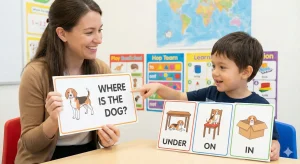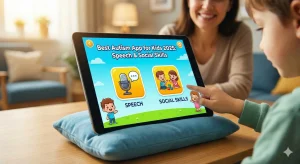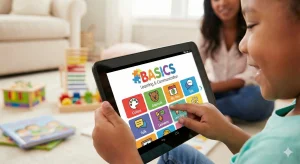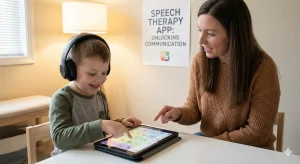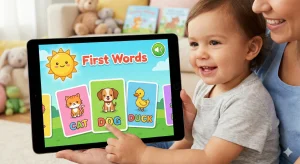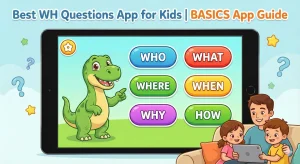ADHD and Stuttering: Challenges and Strategies You Need
By Rajini D
Last Updated: March 4, 2024
For many parents and individuals, the journey of understanding and managing ADHD (Attention Deficit Hyperactivity Disorder) can be challenging. The condition, known for symptoms like impulsivity, hyperactivity, and difficulty focusing, often raises numerous questions about its impacts and related issues. One such question that frequently emerges is whether there’s a link between ADHD and the speech disorder known as stuttering.
Stuttering, characterized by disruptions in the flow of speech, can be a source of frustration and self-consciousness for many. It manifests in various forms, such as repetitions, prolongations, or abnormal stoppages during speech. When combined with the symptoms of ADHD, the challenges can multiply, affecting an individual’s communication, social interactions, and overall quality of life.
In a world where both ADHD and stuttering are often discussed separately, it’s important to explore the possible correlations between these two conditions. Could the impulsivity and hyperactivity associated with ADHD exacerbate the symptoms of stuttering? Or are these two conditions, at their core, interlinked by deeper neurological connections?
Understanding ADHD and Stuttering
Understanding ADHD
Let’s start by unraveling what ADHD is. In its simplest form, ADHD, or Attention Deficit Hyperactivity Disorder, is like having a brain that’s on a never-ending sprint. Imagine a mind racing from one thought to another, finding it hard to settle down. This is the daily reality for someone with ADHD.
Key Symptoms of ADHD:
- Difficulty Focusing: It’s like trying to watch a TV show, but the channels keep changing every few seconds. For individuals with ADHD, maintaining focus on a single task can be a herculean effort.
- Hyperactivity: Picture a bubbling pot that’s always on the verge of boiling over. People with ADHD often feel an internal restlessness, an urge to move, fidget, or talk excessively.
- Impulsivity: Acting without thinking things through, like impulsively buying something without considering if it’s needed. Impulsivity in ADHD can manifest in hasty decisions and difficulty waiting for their turn in conversations.
To understand more about the challenges of focusing on ADHD, read our article on how to improve attention and concentration in studies.
Understanding Stuttering
Now, let’s shift our focus to stuttering. Stuttering is like a hiccup in speech. It’s not just about repeating or prolonging sounds; it’s about the disruption it brings to the natural flow of speaking.
Common Features of Stuttering:
- Repetitions: This is when sounds or syllables are involuntarily repeated, like saying “ca-ca-ca-cat” instead of “cat.”
- Prolongations: Imagine stretching a rubber band; that’s similar to prolonging sounds in words. It’s like saying “ssssssun” instead of “sun.”
- Blocks: Sometimes, there’s a struggle to even start a word, creating a pause filled with tension.
Comparative Overview of ADHD and Stuttering
| Aspect | ADHD | Stuttering |
|---|---|---|
| Main Characteristics | Impulsivity, hyperactivity, inattention, difficulty focusing. | Speech disfluencies, repetitions, prolongations, abnormal stoppages. |
| Impact on Daily Life | Challenges in organization, completing tasks, and social interaction. | Difficulties in communication, self-expression, and social anxiety. |
| Common Misconceptions | Only affects children, leads to poor academic performance. | Caused by nervousness, a reflection of intelligence. |
| Treatment Approaches | Medication (e.g., Ritalin), behavioral therapy, and educational support. | Speech therapy, self-help strategies, confidence-building exercises. |
| Neurological Basis | Differences in brain structure and function, particularly in the frontal lobe. | Disruptions in speech processing areas, like Broca’s area. |
| Emotional Impact | Can lead to frustration, low self-esteem, anxiety. | Often causes social anxiety, fear of speaking, emotional distress. |
| Developmental Onset | Symptoms are typically noticed in early childhood, around ages 3-6. | It Usually begins in early childhood, but can persist into adulthood. |
| Management Strategies | Structured environments, routine, focus-enhancing techniques. | Speech pacing techniques, stress reduction, communication practice. |
Transition to Connection
While ADHD and stuttering might seem like two entirely separate rivers, they often converge in unexpected ways. It’s like two different paths in a forest that suddenly meet. The next sections of our journey will explore how these two conditions, each unique in its challenges, might actually influence and interact with each other more than we initially thought.
The Scientific Link
Neurological Insights
As we delve deeper into the world of ADHD and stuttering, recent scientific studies have shed light on some intriguing connections. Notably, research by Chang et al. in 2008 and Druker in 2018 offers fascinating insights into the brain’s workings in individuals with these conditions.
In simple terms, these studies reveal that certain areas in the brain, particularly the frontal lobe and Broca’s area, function differently in people with ADHD and those who stutter. The frontal lobe is like the control center for our emotions and decision-making processes. When this area has less gray matter volume, as seen in some individuals with ADHD and stuttering, it can impact how speech is processed and produced.
The Broca’s area, on the other hand, is closely linked with speech production. If this area is not functioning optimally, as observed in some cases of ADHD and stuttering, it can lead to difficulties in planning and executing speech. This scientific perspective helps us understand that the link between ADHD and stuttering might be more than just a behavioral coincidence; it could be rooted in the very structure of our brains.
Dive deeper into the brain’s role in ADHD with our article on mental health in students.
Statistics and Research
To put things into perspective, let’s consider some statistics. A study by Druker in 2018 revealed a striking statistic: about 50% of children who stutter also showed signs of ADHD. This number is significant and suggests that the overlap between stuttering and ADHD is more than just a random occurrence.
Visualizing this statistic can be helpful. Imagine a classroom of children. If half of the kids who stutter also have ADHD, it’s clear that these two conditions often walk hand in hand, impacting many young lives. This correlation calls for a deeper understanding and tailored approaches in both education and therapy.
Treatment and Management Strategies
Speech Therapy Innovations
When it comes to addressing the combined challenges of ADHD and stuttering, speech therapy has evolved significantly. Therapists now tailor their approaches to suit the unique needs of individuals grappling with both conditions. This customization is key, as it recognizes that a one-size-fits-all method is often ineffective.
For instance, speech-language pathologists (SLPs) might employ techniques that account for the shorter attention spans commonly associated with ADHD. This could include incorporating more engaging, interactive activities into sessions or breaking down therapy into shorter, more manageable segments. The goal is to maintain the individual’s interest and maximize the effectiveness of the therapy.
Explore more about communication skills in our detailed guide on speech and language therapy.
Another innovative approach involves using technology-assisted tools, like apps and games, which can be particularly appealing and beneficial for children with ADHD. These tools make therapy feel less like a task and more like a fun, engaging activity, thereby improving participation and outcomes.
Learn more about speech therapy options at our online speech therapy page
Medication and Behavioral Approaches
Medications, such as Ritalin (methylphenidate), have been found to be beneficial for some individuals with ADHD, particularly in improving focus and reducing impulsivity. While there’s no direct medication for stuttering, addressing ADHD symptoms can indirectly help manage stuttering issues.
However, it’s crucial to approach treatment with a balanced perspective. Medications are just one part of the puzzle; behavioral approaches are equally important. This involves working on strategies to manage impulsivity, hyperactivity, and attention issues, which can, in turn, positively affect speech fluency.
Behavior modification techniques, like positive reinforcement, can be particularly effective. For example, rewarding a child for staying on task or for practicing speech exercises can encourage more consistent and positive behaviors.
Explore our resource on anger management in children to understand behavior modification techniques.
Practical Tips for Parents and Caregivers
Supportive Practices at Home
For parents and caregivers, managing a child with both ADHD and stuttering can be a challenging journey. But with patience and the right strategies, it can also be rewarding. Here are some practical tips:
- Create a Structured Environment: Children with ADHD often thrive in structured settings. Establishing a routine and a quiet, distraction-free space for speech practice can be helpful.
- Use Positive Reinforcement: Celebrate small successes and progress. This could be as simple as praising your child for completing a speech exercise or staying focused during a task.
- Patience is Key: Remember that progress may be slow, and that’s okay. Patience and consistent support are vital.
For more on managing ADHD, read our insights on how to deal with forgetfulness in students.
Wellness Hub Connection
At Wellness Hub, we understand the intricacies of managing ADHD and stuttering. Our resources and services are designed to support you and your child on this journey. From providing access to qualified speech therapists to offering advice on creating conducive environments at home, Wellness Hub is committed to helping you navigate these challenges.
Empowering the Individual
In our journey to understand and manage ADHD and stuttering, empowering the individual is a crucial step. It’s about equipping you or your loved one with self-help strategies that foster self-improvement and personal growth.
Self-help Strategies
Breathing Exercises:
- The 4-7-8 Technique: This involves breathing in for 4 seconds, holding the breath for 7 seconds, and exhaling for 8 seconds. It’s a method that helps calm the nervous system and can be particularly beneficial before speaking.
- Diaphragmatic Breathing: Focus on breathing deeply into the diaphragm rather than shallow chest breathing. This can help control the pace of your speech and reduce stuttering.
Speaking Techniques:
- Paced Speech: Practice speaking at a slower, more deliberate pace. You can use a metronome app to help maintain a steady rhythm.
- Light Articulatory Contacts: Gently touching your tongue to the roof of your mouth or teeth when starting a word can help reduce stuttering.
- Stretching Techniques: Stretch out the first sound of a word slowly and then transition into the rest of the word.
Mindfulness and Meditation:
- Regular mindfulness practices can enhance focus and reduce impulsivity, aiding in managing ADHD symptoms.
Practice Sessions:
- Set aside time each day for practice. Use books or articles to read aloud, focusing on using the techniques you’ve learned.
For additional self-help strategies, consider reading our article on tips to develop good learning habits.
Self-Help Techniques for ADHD and Stuttering
| Technique | Description | Benefits |
|---|---|---|
| Breathing Exercises | Practices like deep diaphragmatic breathing and the 4-7-8 technique to control breathing patterns. | Reduces anxiety, enhances focus, and helps in speech control. |
| Paced Speech | Speaking at a slower, controlled rate, often using a metronome app for rhythm. | Improves speech fluency, reduces stuttering, and aids in clearer communication. |
| Mindfulness | Engaging in activities that promote present-moment awareness, such as meditation or mindful listening. | Increases attention span, reduces impulsivity, and helps in emotional regulation. |
| Stretching Techniques | Gradually stretching the first sound of a word to ease into speaking it. | Reduces stuttering during speech initiation and improves articulation. |
| Positive Self-talk | Using affirmations and positive statements to build self-esteem and reduce negative thinking. | Boosts confidence, reduces speech-related anxiety and enhances overall well-being. |
| Structured Routines | Establishing consistent daily routines to manage ADHD symptoms. | Improves focus, provides a sense of predictability, and reduces impulsivity. |
| Listening Skills | Practicing active listening to improve communication and social interaction. | Enhances understanding, builds empathy, and improves interpersonal relationships. |
Empowering Language
Empowerment comes not only from what we do but also from how we think and speak about ourselves. Changing the narrative from one of limitation to one of potential can have a profound impact.
- Positive Self-Talk: Encourage yourself with affirmations like, “I am improving every day” or “My voice is strong and clear.”
- Setting Realistic Goals: Set achievable goals for your speech and focus on the progress you’re making.
- Celebrating Small Victories: Acknowledge and celebrate even the smallest improvements in your speech or attention span.
Conclusion
Our exploration into the relationship between ADHD and stuttering, it’s important to reflect on what we’ve learned. We’ve delved into the unique challenges of each condition, unearthed the scientific connections linking them, and explored innovative treatment strategies. Through understanding the neurological underpinnings and embracing tailored therapies, we shed light on a path that promises improvement and empowerment. The journey is complex, but the insights gained are invaluable in paving the way for effective management and support.
This journey, though filled with challenges, is also ripe with opportunities for growth and resilience. Remember, with the right support, dedication, and strategies, managing ADHD and stuttering is not just achievable but can also be a transformative experience. Let these insights be a beacon of hope and encouragement, guiding you or your loved ones toward a path of better communication, self-confidence, and overall well-being. At Wellness Hub, we stand committed to supporting this journey, offering resources and guidance every step of the way.
Frequently Asked Questions
1. What is the connection between ADHD and stuttering?
Research indicates a neurological link between ADHD and stuttering, particularly involving brain areas like the frontal lobe and Broca’s area. These areas are crucial for speech production and processing, and differences in their functioning can contribute to both ADHD and stuttering symptoms.
2. Can treating ADHD help reduce stuttering?
While there’s no direct treatment for stuttering within ADHD therapies, managing ADHD symptoms can indirectly improve stuttering. Medications like Ritalin, combined with speech therapy, can enhance focus and reduce impulsivity, thereby helping with speech fluency.
3. Are there specific speech therapy techniques for children with both ADHD and stuttering?
Yes, speech therapy for children with ADHD and stuttering often involves tailored techniques. This includes shorter, more engaging sessions, interactive tools like apps, and strategies that account for attention span challenges.
4. What self-help strategies can individuals with ADHD and stuttering use?
Effective self-help strategies include breathing exercises, paced speech techniques, and mindfulness practices. These methods can improve focus, reduce speech disfluencies, and help manage ADHD symptoms.
5. How common is it for a child to have both ADHD and stuttering?
Studies, such as the one conducted by Druker in 2018, show that a significant percentage (about 50%) of children who stutter may also exhibit symptoms of ADHD. This highlights the importance of integrated treatment approaches for these overlapping conditions.
6. What role do parent and caregiver support play in managing ADHD and stuttering?
Parent and caregiver support is crucial. Creating a structured, supportive environment at home, using positive reinforcement, and being patient can significantly help children manage both ADHD and stuttering more effectively.
7. Can ADHD and stuttering both be treated simultaneously?
Yes, simultaneous treatment is possible and often recommended. A combination of medication, behavioral therapy, and specialized speech therapy can effectively address both ADHD and stuttering, particularly when tailored to the individual’s needs.
8. What is the first step in seeking help for a child with ADHD and stuttering?
The first step is to consult with healthcare professionals, including pediatricians, speech-language pathologists, and ADHD specialists. Early intervention and a comprehensive treatment plan can lead to better outcomes.
9. Are there any specific lifestyle changes that can help manage ADHD and stuttering?
Yes, lifestyle changes such as maintaining a regular sleep schedule, engaging in physical activity, and following a balanced diet can positively impact both ADHD and stuttering. These changes can improve focus, reduce anxiety, and enhance overall well-being.
10. Is there a genetic link between ADHD and stuttering?
Current research suggests that both ADHD and stuttering may have genetic components. However, the exact nature of this genetic link is still being studied, and environmental factors also play a significant role in the development of these conditions.
About the Author:
Rajini Darugupally
M.Sc., Speech-Language Pathologist (9+ years of experience)
Rajini is a passionate and dedicated Speech-Language Pathologist with over 9+ years of experience, specializing in both developmental speech and language disorders in children and rehabilitation in adults. Driven by a desire to empower each individual to find their voice, Rajini brings a wealth of experience and a warm, genuine approach to therapy.
Currently, at Wellness Hub, she thrives in a team environment that values innovation, compassion, and achieving results for their clients.
Connect with Rajini to learn more about how she can help you or your loved one find their voice.
Book your Free Consultation Today
Parent/Caregiver Info:
Client’s Details:
* Error Message
